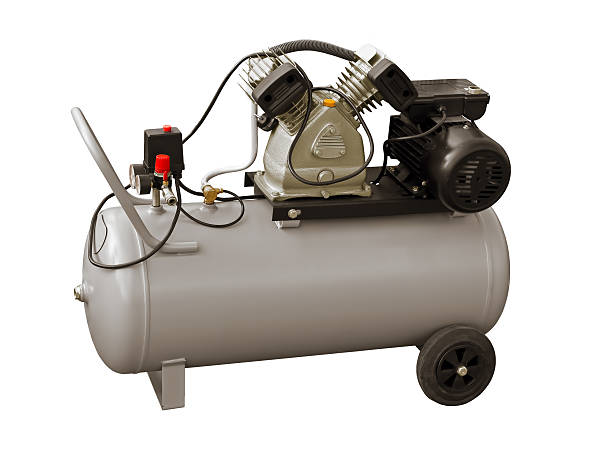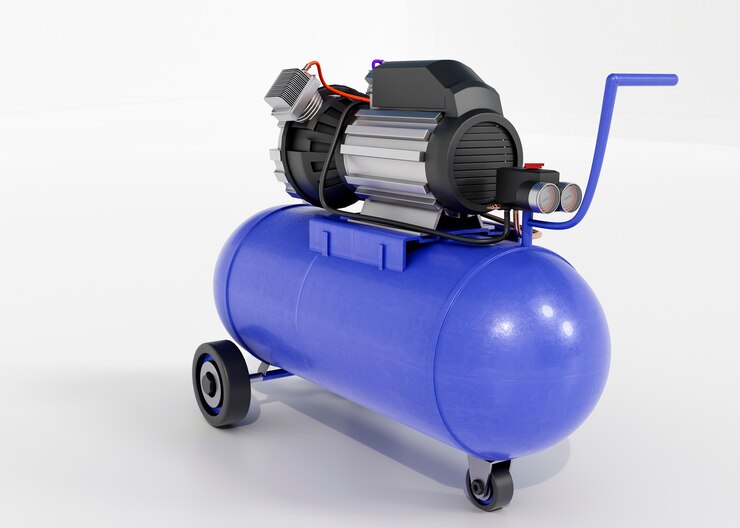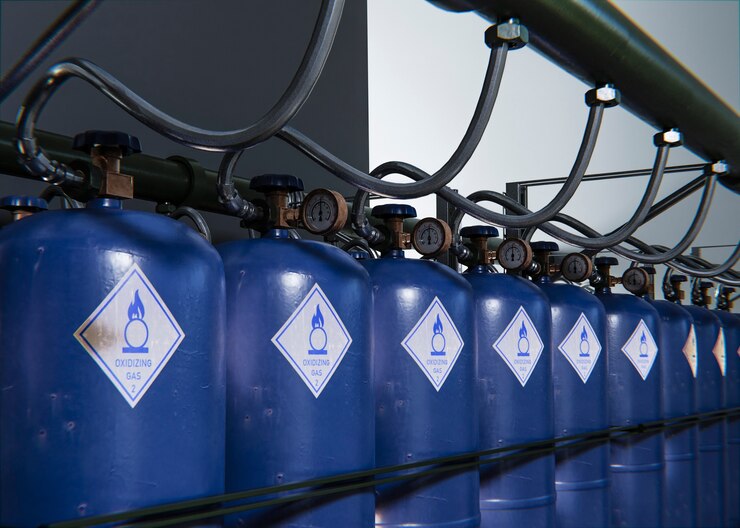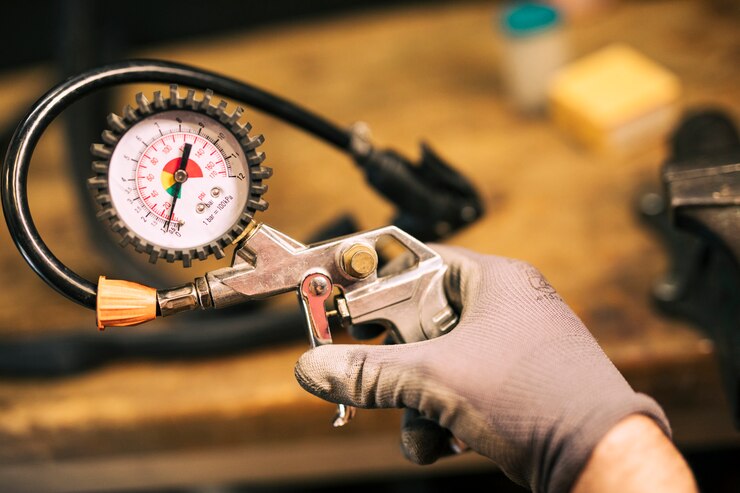Recycle Gas Compressor: A Sustainable Solution for Industry
The Vital Role of Recycle Gas Compressors: Boosting Efficiency Across Industries
Compressors for recycled gas are essential to many industrial operations, especially those in the chemical and oil and gas industries. These workhorses maximize productivity and reduce waste by recapturing and reintroducing wasted gas streams into the system. This thorough book dives deeply into the world of these compressors, examining their uses, varieties, advantages, and important factors to take into account while choosing and maintaining them.
Comprehending Closed-Loop Recycle Gas Compression
A recycle gas compressor primary purpose is to collect a gas stream that would otherwise be flared or vented. After that, the gas is compressed to a greater pressure so that it can be used again in the first procedure. By doing this, a closed-loop system is created, greatly minimizing waste and optimizing the use of priceless resources.
The Main Advantages of Recycle Gas Compression: Unleashing Efficiency
Reduced waste and increased resource utilization are critical in today’s industrial environment. To increase efficiency in a variety of sectors, they are essential in this situation. With so many benefits to offer, these workhorses recover and restore waste gas streams into the system. The following are the main advantages of recycling gas compression:
- Increasing Effectiveness and Saving Money:
Capturing and reusing valuable gas is the main advantage of recycling gas compression. Because of the substantial waste reduction, there is less need to buy more feedstock. Recycle gas compressors result in reduced operating costs and increased profitability for your company by optimizing resource use.
- A Long-Term Fix for a Greener Future:
Recycled gas compression helps to maintain a cleaner environment by collecting and reusing gas that would otherwise be vented or flared. Decreased flaring helps to meet environmental rules and sustainability goals by reducing greenhouse gas emissions.
- Enhanced Flexibility and Production Capability:
Recaptured gas serves as an easily accessible supply of extra feedstock. This can maximize plant capacity and production flexibility, which could result in higher manufacturing output across a range of industries. For example, collected gas in oil refineries may be returned for additional processing, which could increase total product yield.
- Enhanced Process Stability and Control:
In addition to capturing gas, these gas compression systems aid in process pressure and flow regulation. Increased process stability as a result of this better control yields reliable product quality and effective operation.
- Flexibility in Various Use Cases:
The adaptability of recyclable gas compressors is what makes them so beautiful. They are used in many different industries, including the manufacturing of chemicals, renewable energy, and the refining of oil and gas. These compressors provide a potent way to optimize resource use everywhere, be it in fuel cell technology or the extraction of methane from landfills for electricity production.
Purchasing recycle gas compressor equipment is an investment in productivity, sustainability, and efficiency. Valuable gas streams can be captured and used to maximize profits, reduce environmental impact, and promote resource consciousness in the future.
Beyond Oil & Gas: The Diverse Applications of Recycle Gas Compressors
These compressors are widely used in the oil and gas sector, but their applications go far beyond that. These adaptable workhorses are essential for collecting and recycling gas streams in a variety of industries, encouraging productivity and environmental responsibility. Let’s examine a few of the many uses for recycled gas compressors:

The Oil and Gas Sector: The Processing Powerhouse
- Oil Refinery Gas Recycle Compressor:
Reintroduces leftover hydrocarbons for additional processing, maximizing yield and reducing waste.
- Natural Gas Processing Recycle Compressor:
The purpose of the natural gas processing recycle compressor is to maximize product recovery by recirculating valuable light hydrocarbon components (such as propane and ethane) back into the processing stream.
- LNG Recycle Compressor:
Essential for maximizing LNG yield and resource efficiency during storage and transit by compressing boil-off gas, or evaporated LNG.
Chemical Industry: Increasing Production and Streamlining Reactions
- Chemical Plant Recycle Compressor:
Increases productivity and yield in a variety of chemical operations by recirculating unreacted process gases. As a result, waste is decreased and resource usage is optimized during the chemical production process.
- Ethylene Cracker Recycle Compressor:
The Ethylene Cracker Recycle Compressor is a crucial component in the manufacture of plastics since it gathers unreacted ethane during the ethylene cracking process. In doing so, waste streams are reduced and ethylene production is maximized.
- Ammonia Plant Recycle Compressor:
Reintroducing unreacted hydrogen into the ammonia synthesis loop maximizes efficiency and lessens dependency on fresh hydrogen feedstock through the use of an ammonia plant recycle compressor.
The Emergence of Renewable Energy: Seizing the Potential of Biogas and Landfill Gas
- Landfill Gas Recycle Compressor:
Methane, a significant part of waste gas, is captured by a landfill gas recycle compressor and used for additional processing or power generation. By doing this, garbage is converted into a useful renewable energy source.
- Biogas Recycle Compressor:
Optimizes the generation of renewable energy by recirculating leftover biogas from anaerobic digestion plants. The breakdown of organic waste can produce biogas, which can be a sustainable fuel source for a variety of uses.
The Hydrogen Economy: A Crucial Role in Sustainable Energy Solutions
- Hydrogen Recycle Compressor:
Essential for recovering and repurposing hydrogen for use in a range of industrial uses, such as fuel cell technology. In the process of creating a cleaner energy future, this encourages the use of hydrogen in a closed-loop system.
Selecting and Maintaining Recycle Gas Compressors: Optimizing Performance for Long-Term Success
In many sectors, recycle gas compressor is the epitome of efficiency. However, for best results and long-term success, the right one must be chosen and carefully maintained. This is a how-to for figuring out the selection procedure and making sure your compressor performs to its greatest ability:
Selecting the Correct Fit: It All Comes Down to Individual Needs
When it comes to recycling gas compressors, there isn’t a single method that works for everyone. The best option is determined by several important factors:
- Needs for Capacity:
This is crucial. The intended flow rate (volume per unit time) and pressure output of your particular gas stream must be supported by the compressor. Your activity may be hampered by bottlenecks caused by insufficient capacity.
- Gas Composition:
Not all gases have the same properties. Compressor selection may be impacted by impurities like moisture, dust, or particles. Centrifugal compressors may need cleaner streams for best performance, but reciprocating compressors are great at handling “dirty” gas streams.
- Operating Environment:
Take into account elements such as available space, vibration tolerance, and ambient temperature. For example, a small centrifugal compressor would be better if there wasn’t much room. On the other hand, additional cooling system considerations can be required if operating in extremely high or low temperatures.
Above and Beyond: Effectiveness, Upkeep, and Security
Although these are the main ones, there are other things to think about:
- Efficiency:
Centrifugal compressors are often more efficient than reciprocating ones if energy costs are a major consideration.
- Maintenance Requirements:
The maintenance needs of various compressor types differ. Centrifugal compressors often require less maintenance than reciprocating compressors, however reciprocating compressors may require more often. Analyze your maintenance budget and available resources.
- Safety Considerations:
Safety is the most important thing to consider. Select a compressor that conforms to all applicable safety guidelines and requirements. For your particular application, take into account other elements like noise levels and possible emission control needs.
Maintaining Peak Performance: A Long-Term Commitment
An exclusive maintenance schedule is essential after you’ve chosen the ideal compressor. Frequent maintenance keeps your equipment operating at peak efficiency, reduces downtime, and increases its lifespan. This comprises:
- Observing the maintenance schedule suggested by the manufacturer.
- Checking and changing filters, lubricants, and other important parts regularly.
- Preventative maintenance should be scheduled to find possible problems early on and fix them before they worsen.
Through meticulous deliberation throughout the selection process and the execution of a comprehensive maintenance regimen, you can guarantee that you recycle gas compressor functions at optimal efficiency, optimizing its effectiveness and making a substantial contribution to the triumph of your industrial operations.
Recycle Gas Compressor Types: Picking the Perfect Workhorse for Your Needs
Efficiency is a key component of the industrial sector, and gas compressors are essential to attaining this. But with so many different types of compressors available, it’s crucial to select the appropriate one for your particular application. Let’s examine the most popular varieties of recycle gas compressors, emphasizing their advantages and pointing you in the direction of the ideal match:
Centrifugal Recycle Gas Compressors: Champions of High Flow and Efficiency
- Function:
These compressors are excellent at constantly handling big-volume gas streams because they use high-speed impellers.
- Strengths:
They operate smoothly and continuously, are incredibly efficient, and are perfect for large-scale applications.
- Considerations:
A bigger footprint than some other types, the potential need for cleaner gas streams, and the potential unsuitability for applications requiring high-pressure outputs are some things to keep in mind.
Compressors for Reciprocating Recycle Gas: The Dependable All-Rounders
- Function:
By using pistons that move inside cylinders, these compressors provide a flexible solution for a range of gas compositions.
- Strengths:
Well-known for their dependability and capacity to manage “dirty” gas streams including impurities, which allows them to be flexible in a range of settings.
- Considerations:
May not be suitable for very high flow rates, need more frequent maintenance, and are generally less efficient than centrifugal compressors.
Conclusion:
To meet your unique requirements, LIEYAO Compressor offers a range of compressor types that guarantee peak performance for a variety of gas streams. We provide industry-leading recyclable gas compression solutions to empower your processes, from increased efficiency to environmental responsibility. Speak with us right now to discuss your needs.



